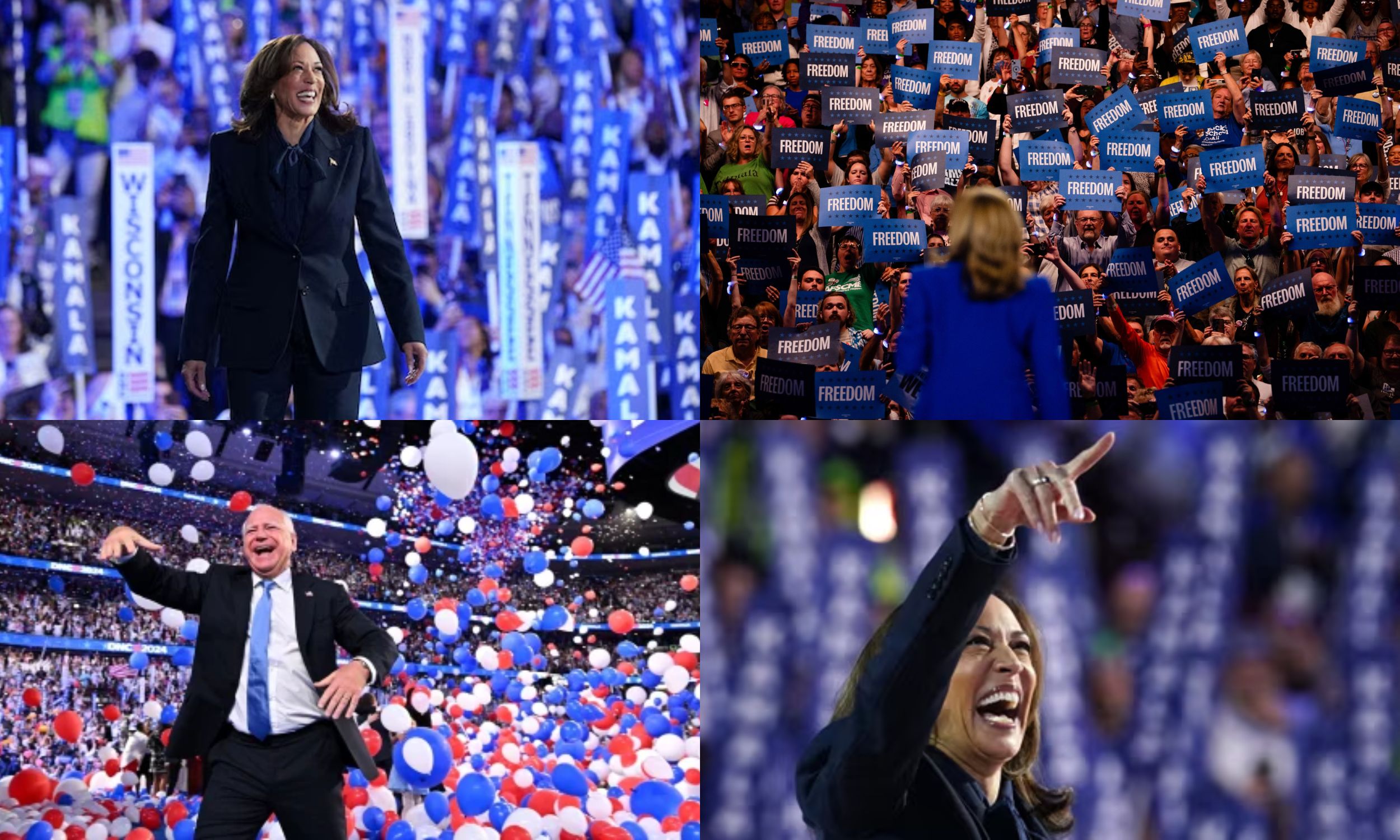Vice President Kamala Harris’s acceptance of the Democratic presidential nomination on Thursday was a defining moment of the convention, but the evening also featured a series of events.
Harris’s speech was a call for national unity, aimed at bridging divides both within and beyond the Democratic Party. She framed her nomination as a milestone for all Americans, emphasizing inclusivity across party lines, racial backgrounds, and linguistic differences.

Kamala Harris’s acceptance speech emphasizes national unity and inclusivity across party lines
Throughout the convention, tensions within the party were evident, particularly concerning the Israel-Hamas conflict. Outside the venue, protesters criticized the exclusion of a Palestinian American speaker, reflecting broader disputes within the party. Harris sought to balance U.S. support for Israel with empathy for the dire situation in Gaza. She committed to addressing the conflict with a focus on securing Israel’s safety while working towards a resolution that respects Palestinian rights.
The evening also featured a poignant segment with survivors of gun violence, who shared their personal tragedies and advocated for stricter gun control measures. Their stories contrasted sharply with former President Trump’s previous stance on gun legislation. Among them were Rep. Lucy McBath, who lost her son to gun violence, and Kim Rubio, who recounted the Uvalde school shooting. Their emotional appeals underscored the urgent need for reform.
Additionally, members of the Central Park Five, wrongfully convicted in 1989 and later exonerated, criticized Trump for his past support of their harsh treatment. Their appearance highlighted the long-lasting impact of Trump’s divisive rhetoric.
Sen. Elizabeth Warren’s reception was marked by deep emotion as she was applauded by the convention audience. She spoke about her admiration for Harris and their shared efforts against financial malfeasance during the 2008 crisis.
The night also included a celebrity moment with a “Scandal” reunion featuring Kerry Washington and Tony Goldwyn. Washington celebrated the audience’s support, likening them to her character’s role as political fixers, while Goldwyn’s appearance with her phone elicited cheers, blending entertainment with political enthusiasm.























